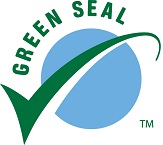 WASHINGTON, D.C.—By the end of this year, the Green Seal Standard for Lodging Properties, GS-33, will be updated, improving upon a program that was first introduced in 1999. While there have been years when the program has had more than 100 participants, this year GS-33 is still going strong with 83 certified properties at either the Bronze, Silver or Gold level. Eight additional applications are currently in progress.
WASHINGTON, D.C.—By the end of this year, the Green Seal Standard for Lodging Properties, GS-33, will be updated, improving upon a program that was first introduced in 1999. While there have been years when the program has had more than 100 participants, this year GS-33 is still going strong with 83 certified properties at either the Bronze, Silver or Gold level. Eight additional applications are currently in progress.
According to Linda Chipperfield, vice president of marketing and communications for the nonprofit Green Seal, the organization’s growth strategy includes working with cities and states. Green Seal has made progress in Chicago where 16 hotels have been certified, and is currently working with the City of Los Angeles to encourage hotels to be certified.
In 2010, the Kimpton Hotels and Restaurants Group committed to have all its hotels Green Seal certified. “They had a change in management and a change of heart,” Chipperfield says. “They discontinued that commitment after a couple of years.” (Kimpton has since committed to Green Key Global for its hotel certification.) Kimpton’s decision is one key reason Green Seal’s hotel tally fell below 100.
Six Primary Criteria Areas
Hoteliers participating in GS-33 are asked to complete an application that covers areas including the following: Waste Minimization, Reuse and Recycling; Energy Efficiency, Conservation and Management; Management of Fresh Water Resources; Waste Water Management; Hazardous Substances; and Environmentally and Socially Sensitive Purchasing Policy. GS-33 does not include swimming pools, golf courses, or restaurants associated with the property.
Application questions touch on areas from bulk purchasing to lighting replacement to preventive maintenance. In each case participants are asked to provide documentation proving they are doing what they say they are doing. Hotels are not certified until they undergo an on-site inspection. After an inspection, the auditor supplies the property with an audit report with any required corrective actions. Corrective actions noted during the on-site audit must be addressed within 120 days of receipt of the audit. After all is said and done, the time from application to certification can be at least several months.
“We think it is real important to have an on-site inspection,” Chipperfield says. “Getting to the location and seeing what it is they are really doing is very important.”
After being in the program for one year a monitoring process begins that culminates in a second site inspection. Typically, hotels are inspected about once every 18 months, says Cerise Bridges, certification specialist for Green Seal. Hotels cover the travel costs for the inspection.
Range of Application, Monitoring, Travel Costs
Evaluation fees depend on the property’s size and the level of certification for which one is applying. They can be as low as $1,950 and as high as $3,200. Annual monitoring fees (after the first year) are the same—from $1,950 to $3,200. After the first year properties can get a discount if they choose to pursue a higher level of certification. (Bronze level hotels are required to move up to the Silver level after three years. Silver and Gold level hotels can stay at those levels indefinitely.)
“We try to keep the fees to what the certification actually costs,” Chipperfield says. “We try to minimize travel costs.”
Reaching the Gold level of GS-33 is not easy. Properties must achieve all criteria in Silver, have a plan for continuous improvement, and do three of the following: set substantive, meaningful goals for energy reduction; use at least 25 percent renewable energy; produce zero waste; meet the requirements, or be certified, for the Green Seal Environmental Standard for Cleaning Services (GS-42); and meter and monitor water usage and have only EPA WaterSense toilets, bathroom faucets, shower heads, and landscape irrigation.
Marketing Support Provided
Once a property is certified it receives a welcome kit from Green Seal. The kit spells out how a property can promote its certification. There are templates for posters and counter displays. Certified hotels receive a certificate and can opt to purchase customized plaques. Properties are promoted through social media, at trade shows, and to government purchasers. Green Seal certified hotels are also noted as green by AAA and Travelocity.
***This article is the third in a series on green lodging certification. To read the first article in the series, click here. To read the second article in the series, click here. To read the fourth article in the series, click here.
Go to Green Seal.
Glenn Hasek can be reached at editor@greenlodgingnews.com.






